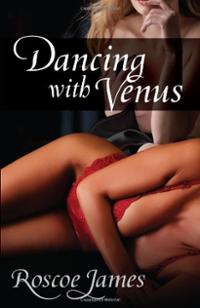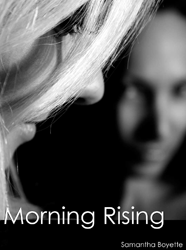Usually if I don’t already know an author, I try to not read about them until I know how their work stands on its own. Once I’m done, I’ll decide if I’m interested in the rest of the writer’s work, and find out about them as a person on the way. The more critically I read, the more I realize it’s important to know the context of any reading material, especially fiction. Who wrote what you’re reading, and for what purpose? About a third of the way through Dancing with Venus, that’s exactly what I began wondering. Who wrote this, and why?
The novel starts out with clear, solid scenery and follows Jessie Butler, a blues singer who left home not to chase her dreams, but apparently to get away from her mother. She seems pretty cliche at first, a blues singer on a Greyhound home thinking about all the wrongs her mother committed against her as a teenager. She has a pink notebook she writes down her sexcapades in, except the first few entries are false. So far, we know Jessica Butler is a rough-and-tumble blues gal with a vendetta, going home for some reason. It isn’t clear at first why, which is a good hook to keep you reading, but the realization that she’s going home for a wedding and not some debilitating disease her sister left me frustrated; when I learned that Jessie had slept with her sister’s boyfriend some time ago, even moreso. The tie between Jessie and her sister, the drama of her sister getting married, barely makes an appearance.
It’s once Jessie is home and interacting with her engaged sisters’ friends that I began wondering about the author behind this novel and what their goal was. Jessie’s attitude toward other characters is superficial and feels contrived, and after the tenth time she mentally refers to her sister’s friends as the “cheer squad” I started getting uncomfortable. After the twentieth time Jessie is referred to with “Psycho Woman” as a nickname, I started feeling less like I was reading a lesbian erotica novel and more like I was watching a movie about infantile women catering to the male gaze.
Dancing with Venus is definitely lesbian erotica, though I don’t recall a single erotic scene that was exciting. Instead, I found myself cringing because words like “sopping” and “gullet” belong more in a cookbook than a sexy scene, and James tells instead of showing. The scenes, sexy or emotional, feel rushed and fall short of the depth they’re supposed to have. This is where the context becomes important for me; I’m not insistent on reading lesbian erotica written by lesbians, or even women, but it’s uncomfortable when every scene presented in a novel makes me question if the author really understands women. The degredation of the characters is too casual to be realistic, with the “cheer squad” and “Psycho Woman” and her “little pink book.” I didn’t feel like I was reading about adult lesbians, but about girls stuck in an awkward mix of affected Southern-style endearments and basic middle school language.
All in all, the characters weren’t convincing women for me, though the plot has a lot of potential. The push-and-pull between Jessie and Marci is frustrating and unfulfilling, but I feel this is due to the tell-don’t-show style of the writing more than anything, and that with skill it could be well-executed drama. I found myself not only indifferent, but eagerly waiting for Dancing with Venus to be over so I could reach a resolution and move on.

